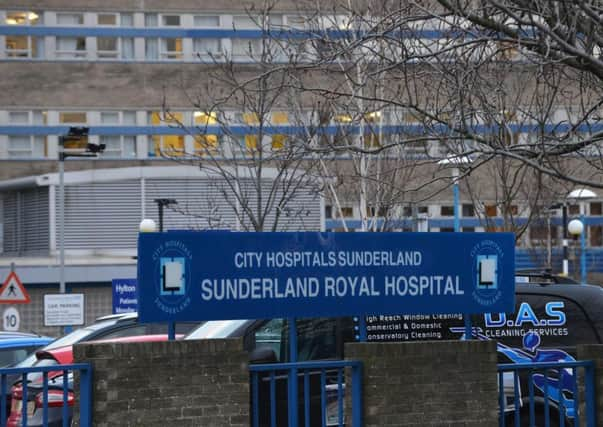Six ambulances a day delayed by at least an hour in Sunderland


Figures released by NHS England show that, for the period from Christmas Day to New Year’s Eve, 75 ambulances in the Sunderland area were delayed by 30 to 60minutes, and 42 were delayed by an hour or more.
The situation reached its most critical point on December 30 and New Year’s Eve.
Advertisement
Hide AdAdvertisement
Hide AdOn both days, 10 ambulances were delayed by between 30 and 60 minutes, while 12 and 14 ambulances respectively were delayed by an hour or more. It comes as health chiefs warn people to stay away from hospitals in non-emergency situations, particularly those with flu-like symptoms, sickness and diarrhoea.
Ken Bremner, chief executive of City Hospitals Sunderland and South Tyneside NHS Foundation Trusts, said: “During December we have seen a rise in the number of people coming into our emergency departments in both South Tyneside and Sunderland, many of whom have been very unwell and required hospital admission. This is something we always actively plan for, to make sure we are able to cope well with the influx of very-poorly patients that we expect to see at this time of the year and who need to stay in hospital.
“We are also now starting to see more flu and norovirus take hold across the region which can spread very easily and be very dangerous for older or vulnerable patients. We are therefore urging anyone with flu-like symptoms or sickness and diarrhoea to stay away from hospitals.”
Bed occupancy rates in Sunderland hospitals did, though, remain within the recommended safe limit of 85% between Christmas and New Year, never rising higher than 84.9%.
Advertisement
Hide AdAdvertisement
Hide AdThere was a different story elsewhere with, for example, at least 90% of hospital beds in the South Tyneside NHS Foundation Trust occupied between Boxing Day and New Year’s Eve.
The Royal College of Nursing claim there is now a ‘full-blown crisis’.
Glenn Turp, regional director of the Royal College of Nursing in the northern region, said: “It’s very clear from today’s figures that the NHS, and hospitals in particular, are operating under severe pressure.
“Nursing staff are struggling to hold the NHS together and the situation continues to get worse with increasing demand from an ageing population and a severe nursing recruitment and retention problem.
“The RCN has been warning of under-investment in nursing staff for years.
“That underlying problem has now developed into a full-blown crisis.”